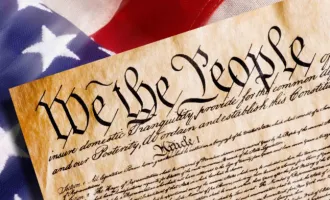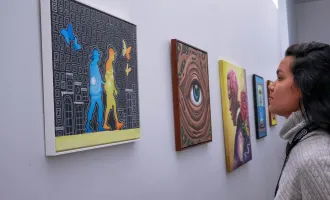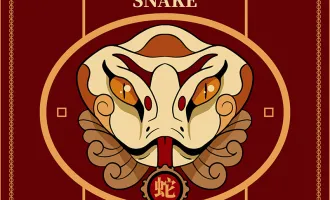Black Radio by the Robert Glasper Experiment
In this 2012 release, jazz pianist and hip-hop producer Robert Glasper gives listeners a deep look into what survives and is subsequently generated when all his musical influences are boiled down to their essences.
As Glasper is African American, the album’s title has an obvious racial overtone, but “black radio” is also a term used to refer to an airplane’s flight data recorder, a part deemed so essential it is designed to endure the most horrific of crashes.
The title track, which features Yasiin Bey (formerly known as Mos Def), is based on a joke that if the black radio survives the plane crash, maybe we should make the whole plane out of that stuff. If this album is analogous to the plane, then Glasper has succeeded with this release.
One of the themes visited throughout the album is the blurring of barriers among musical styles — so much so that the album topped not only the jazz charts, but also made a strong showing on the hip-hop charts.
Glasper has expressed surprise, saying that he never expected to see his name on a page next to Rihanna’s. Undoubtedly an important part of the accessibility of this album for listeners who are not overly familiar with jazz is the prominence of lead vocals either sung in an R&B style or rapped, featuring guests including Erykah Badu, Lalah Hathaway, Me’Shell NdegéOcello and Bey.
That said, Glasper has been careful not to dumb down the music, experimenting assertively with harmonic, textural, melodic and rhythmic freedom over meditatively driving grooves.
Particularly striking moments on the album for me were Badu’s voice on the Mongo Santamaria classic “Afro Blue,” Casey Benjamin’s electronically processed saxophone solo on Sade’s “Cherish the Day,” Glasper’s spoken word on the categorization of jazz musicians in the outro of his original tune “Gonna Be Alright” and Bey’s fluid and fresh rap on “Black Radio.”
Less expected on Glasper’s album, let alone on the list of his influences, are revoicings of “Letter to Hermione,” David Bowie’s breakup ballad to a girlfriend from the 1960s, and Nirvana’s epic “Smells Like Teen Spirit,” with the vocal sent through a vocoder.
Throughout the album, Glasper pays tribute to jazz icons like Charlie Parker and John Coltrane, embracing the traditions that have made him the musician he is today and using them as a springboard for the directions that jazz can take over the next several decades.
At the very least, listen to this album. No matter what your stylistic leanings, I think you’ll find something that speaks to you on Black Radio. If you’re so moved (as I am), you can catch Robert Glasper live later this month here in The City.
He’ll be playing a show with Reggie Watts, a Seattle-based entertainer who performs music, theater, dance and comedy. Along with drummer Chris Dave, they will be doing an improvised, multi-esthetic set at Mezzanine (444 Jessie St.) on Tuesday, January 29. Happy listening.


